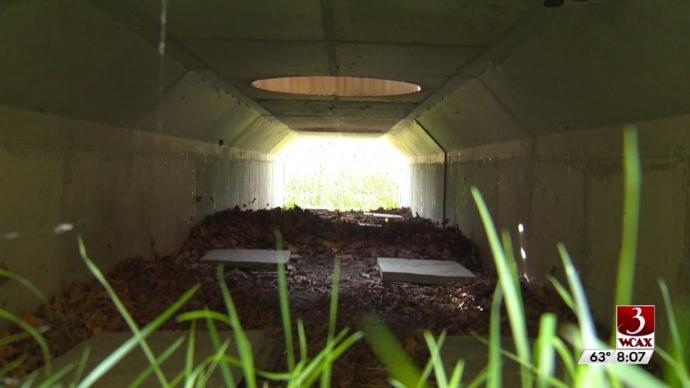Monkton Underpass Receives Environmental Excellence Award

Federal Highway Administration and private donors from Monkton and beyond helped fund a tunnel that could save thousands of frogs, salamanders, and other wildlife. Watch more here.
How Controversial Guantanamo Bay Became an Unlikely Wildlife Haven

Murray Carpenter reports on efforts to study Cuban wildlife at Naval Station Guantanamo Bay in the Washington Post. Read more about the state of wildlife on the base here.
How Much of the Ocean is Whale Pee (and Worse)?
Mindy Weisberger looks at the impacts of whales on marine ecosystems in Live Science.
Guantánamo: From Prison to Marine Conservation Peace Park
Elizabeth Kolbert writes about the dream to turn Gitmo into a state-of-the-art marine research institution and peace park in The New Yorker.
Scientists Want to Turn Guantánamo Bay into a Research Park
“One way to return the land and improve diplomacy would be to convert the area into a research center that would host both American and Cuban researchers,” says Joe Roman. Casey Williams reports on the Gitmo proposal in the Huffington Post.
Global nutrient transport in a world of giants
Doughty, C. E., J. Roman, S. Faurby, A. Wolf, A. Haque, E. S. Bakker, Y. Malhi, J. B. Dunning Jr., and J.-C. Svenning. 2015. Proceedings of the National Academy of Sciences doi/10.1073/pnas.1502549112.
Whale Poop Drives Global Nutrient Cycling
Whales fertilize ocean surface waters with key nutrients like phosphorus, which move through the food chain, and eventually, onto land. Christopher Intagliata interviews Joe Roman on Scientific American‘s 60-Second Science.
Montpelier, Vermont

Joe Roman and speakers from around the country joined to discuss the value of conservation in Vermont. October 30, 2014, National Life Cafeteria, Montpelier, 8:30 to 11 am
Whale Poop Might Help Fight Climate Change
How flocculent fecal plumes can take carbon out of the atmosphere, in The Atlantic‘s CityLab.
You’ve heard a lot about whale poop, what about l’urine?
Parlez-vous français ? Read about the impacts of l’urine de baleine on climate change ici.